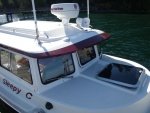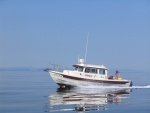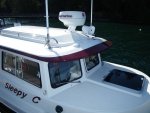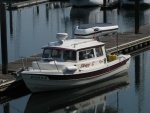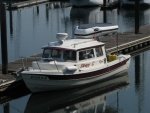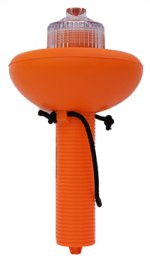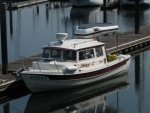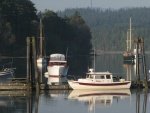hardee
Well-known member
- Joined
- Oct 30, 2006
- Messages
- 12,662
- Reaction score
- 28
- C Dory Year
- 2005
- C Dory Model
- 22 Cruiser
- Hull Identification Number
- Brat # 2202
- Vessel Name
- Sleepy-C
ssobol":kwr0cxi1 said:My understanding for an unregistered DSC radio is that the DSC activation will still send your position. It just won't be able to be cross referenced to your name, address, boat name, etc. through a database look up.
Putting a MMSI number into your radio does not magically load that info into your device, there has to be an external database.
Also, if you want a "real" number that works everywhere you need to pay some money for it. The free (or low cost) ones are only registered in the US.
FIRST OF ALL, IF you install a DSC VHF radio, It has to have GPS input from someplace, either an internal GPS (of which there are becoming more available), connected to a GPS or to an MFD with GPS output.
IF that is done, THEN your VHF will send out a signal with your location when you lift the Red Cover and push and hold the DSC Emergency button. I believe that is common for all brands, (But you should check with your VHF instructions or manufacture's rep for your specific model.)
WHEN the MMSI is entered into your VHF, your specific boat information is included in the emergency broadcast. If you received your MMSI from the US FCC and paid the associated fees, your information will be in an international data base and accessible to non-USA Search And Rescue agencies. If your MMSI came from another source, ( BoatUS, or ???) then you are only listed in a USA available data base. Your position will still be broadcast if you are in foreign waters, but specific boat info, (Boat name, Length, color, type, power, home port etc will not be available.) I have heard from a Canadian Coast Guard officer that in some cases at least, they have called the US Coast Guard for additional MMSI info when they are tracking a signal.
Hope that clarifies some.
Harvey
SleepyC:moon
